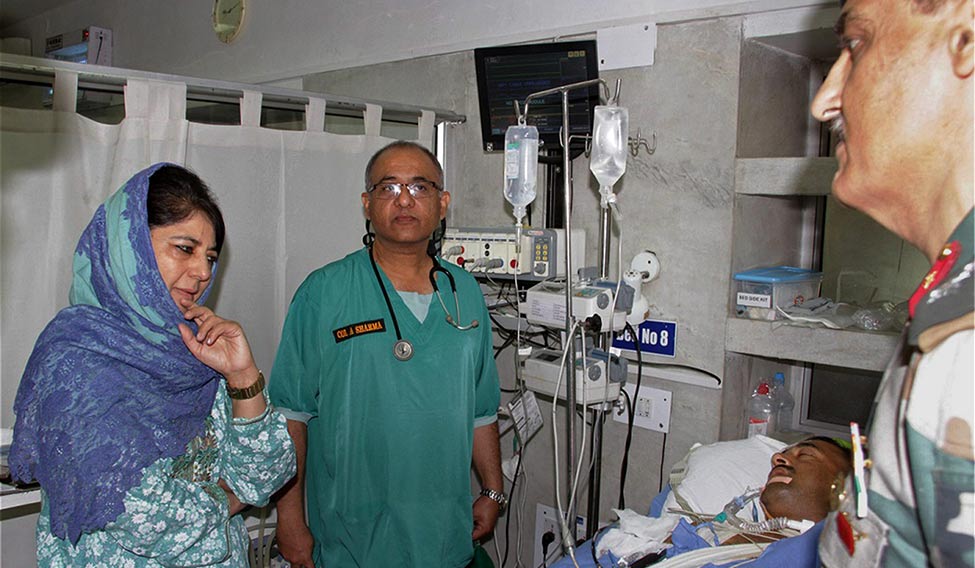The Uri attack has made a bad security situation worse in Jammu and Kashmir. Chief Minister Mehbooba Mufti and her party, the PDP, were already battling a serious crisis of credibility owing to the heavy loss of civilian casualties—more than 80 dead and 8,000 injured—in the ongoing uprising, sparked by the killing of Hizbul Mujahideen commander Burhan Wani and his two associates on July 8. The party's power base in south Kashmir—Anantnag, Pulwama, Shopian and Kulgam—has been in disarray. Sources said more than 80 boys have joined the militant ranks here in the last two months, and the Uri attack is likely to motivate more.
Mehbooba's popularity, no doubt, is on the wane. An indication of her declining authority was evident when Governor N.N. Vohra summoned her to attend a security meeting of the unified command comprising the Army, CRPF, police and intelligence agencies. As head of the unified command, the chief minister presides over all such meetings. The summoning was, therefore, interpreted by many, including the opposition, as indication of a tacit surrender of Mehbooba's authority. “Mehbooba Mufti has been reduced to a mere figurehead by New Delhi,” said National Conference provincial president Nasir Aslam Wani. “She was merely summoned to play a supporting role to the governor.”
Mehbooba called the Uri attack an attempt aimed at “triggering fresh violence and creating a war-like situation in the region”. Jammu and Kashmir, she said, has always been the “worst victim of Indo-Pak hostility” and its people have been “paying a colossal price for the same for over six decades”.
Following the Uri attack, the Army is likely to flex more muscles to control the situation in south Kashmir. The Army has already secured the national highway that connects Kashmir to the rest of India, and is slowly making its way into the interiors. Since July 8, no military operations were carried out in militancy-infested Tral, Pulwama and Shopian for fear of a public reaction. The anti-militancy operations will now resume, said sources. This will further put pressure on the Mehbooba government that has been trying to pacify the people, but with little success.
Mehbooba's tenure as chief minister is in complete contrast to her father's. During Mufti Mohammed Sayeed's tenure, the common Kashmiri regained a sense of security, largely because of the peace initiatives by former prime minister Atal Bihari Vajpayee and General Pervez Musharraf, who was president of Pakistan. Under pressure from the United States following the September 11, 2001 attacks, Musharraf made peace with India, and a ceasefire on the Line of Control was announced. For the next three years, infiltration reduced to a trickle and later died down.
But that was long ago. Today, Mehbooba's dependence on security forces will increase further, and her defence of the excessive use of force against protesters has isolated her even within the party. Tariq Karra, a founding member of the PDP and one-time supporter of Mehbooba, resigned from the party and Parliament to protest what, he called, was worse than the Nazi's treatment being meted out to the protesters. He said the Mehbooba government had completely surrendered before the “RSS-backed BJP”. Senior leader Nisar Ahmad Mandoo, too, has resigned from the PDP, saying, “The massacre has been going on for the past two and a half months. The blood of the people of Kashmir is being spilled and many children have been deprived of their vision. It has shaken my conscience and I want to join the public.”






